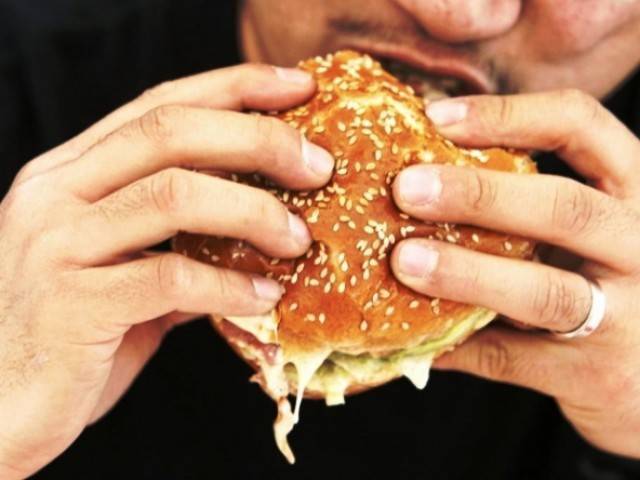
This question begs an explanation for all the eating impulses, cravings and gluttonous feelings we have. Is it just greed or something else actually happens?
Karachi's educationists stress need to create mental health awareness
Acknowledging the fact that self-control plays an important role in keeping calorie count, there is ample evidence to suggest that stress causes unhealthy eating and weight gain.
Chronic stress causes sleep disturbances and increased blood sugar levels. Untimely hunger pangs and overeating are the coping mechanisms people develop to placate that stress.
This leads to an endless cycle of more sleep disturbance and increased blood sugar levels, which can also cause type-2 diabetes.
Dr Giles Yeo, a member of the 'Trust Me, I'm a Doctor team' collaborated with a group of scientists from Leeds University to find out the correlation between stress and overeating. To test Yeo took the Maastricht Stress Test for them.
The test involved solving rapid math questions, after which Yeo was asked to put his hand in ice-cold water after the scientists measured his blood sugar levels. This was done to control blood sugar levels which normalised quickly, but on a stressful day, when Yeo took the test again, his sugar level normalised three hours later. This happens because the body descends into a 'fight or flight mode'.
In this 'mode' the body feels attacked and releases an excess of glucose into the bloodstream. To flush out excess glucose, the pancreas pump out insulin which normalises blood sugar levels. Increased levels of insulin and dropping blood sugar level causes hunger and lack of sleep.
Social media addiction is not completely correlated with screentime
The same correlation was also confirmed in a research carried out by King's College London. Sleep-deprived people were found consuming an average of 385 kcal, which is roughly the calorie count of a large muffin.
In another study, small children, of the ages three and four, were made to stay awake for longer than they would and it was found that they ate 20 per cent more calories than usual. These were mostly empty calories, including sugars and carbohydrates.
So how to reduce daily stress?
Some stress-busting techniques include a good sleep routine, exercise, gardening, mindfulness or yoga. But one must enjoy them.
This article originally appeared on the BBC.









1725446940-0/Untitled-design-(16)1725446940-0-270x192.webp)













COMMENTS
Comments are moderated and generally will be posted if they are on-topic and not abusive.
For more information, please see our Comments FAQ